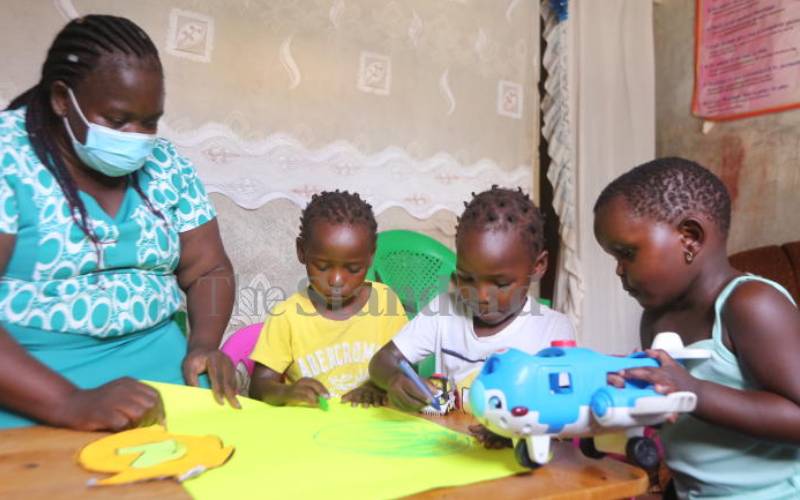×
The Standard e-Paper
Fearless, Trusted News

Mary Lubia assists her children with homework at her home in Kisumu. [Collins Oduor, Standard]
Touted as the most ideal education system in the country, the Competency-Based Curriculum (CBC) appears to be giving many parents sleepless nights.







